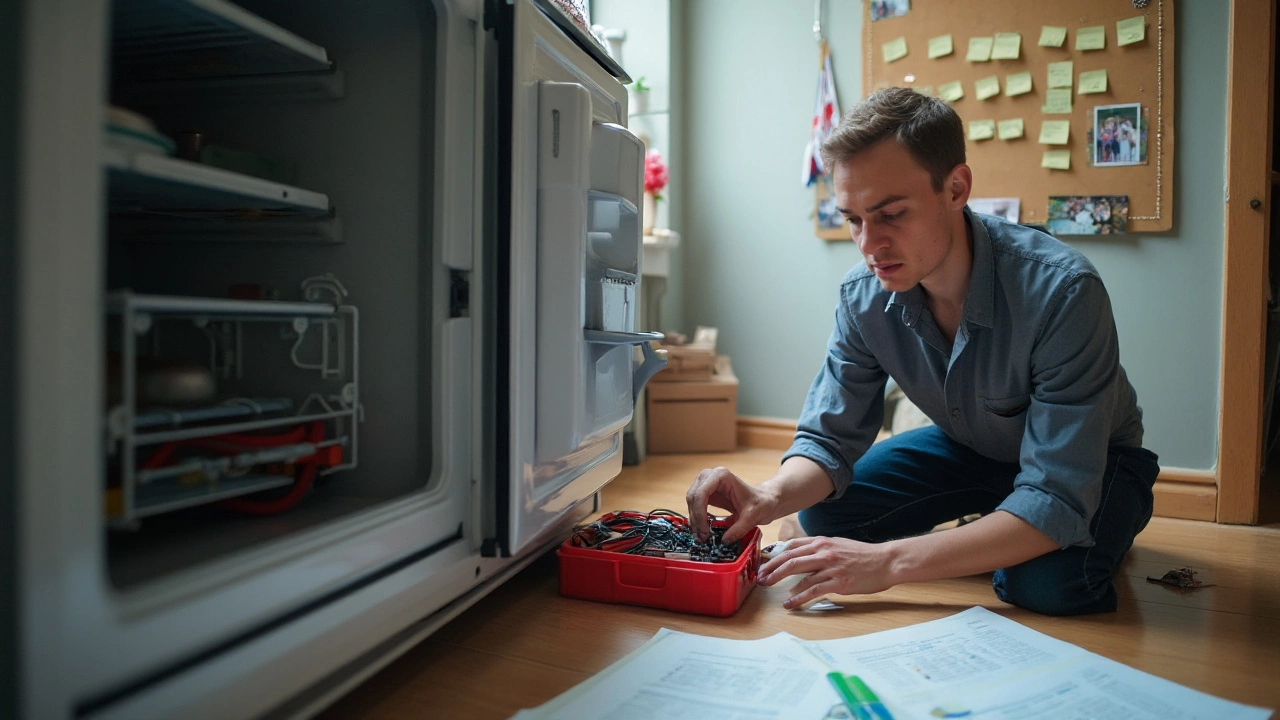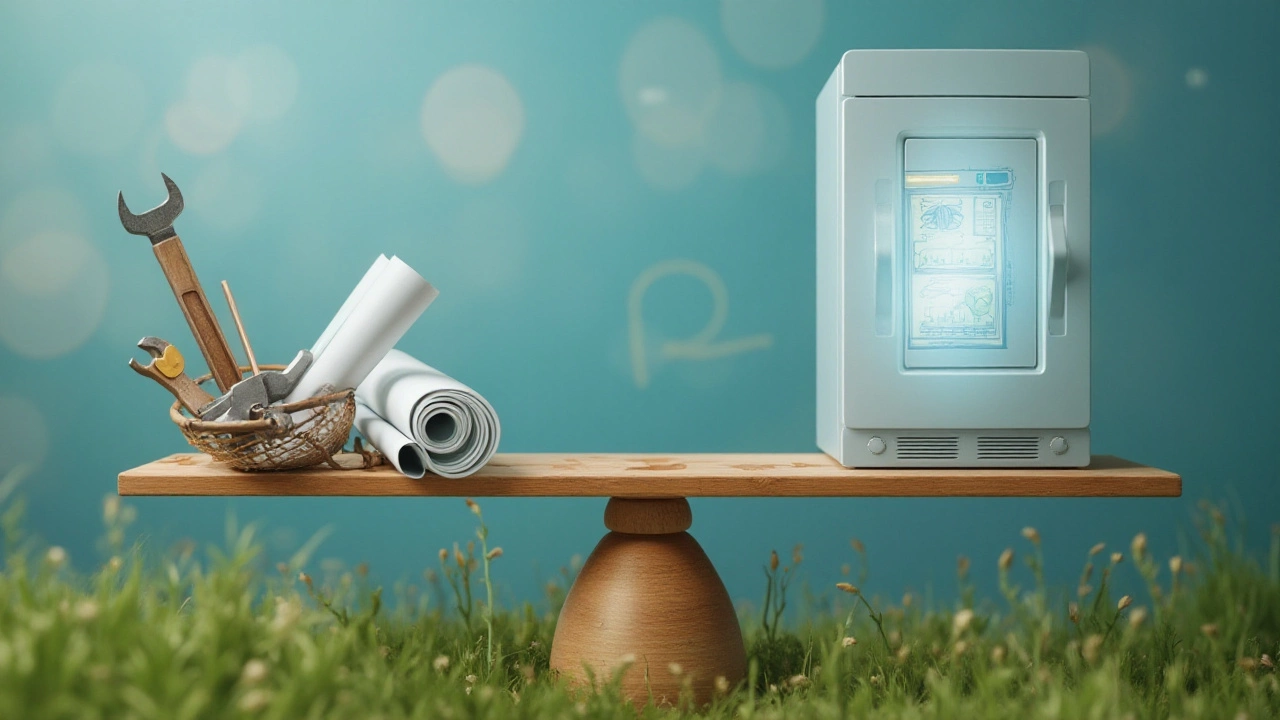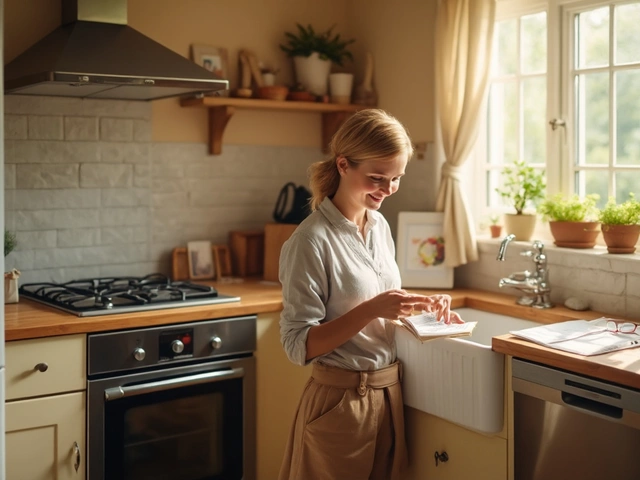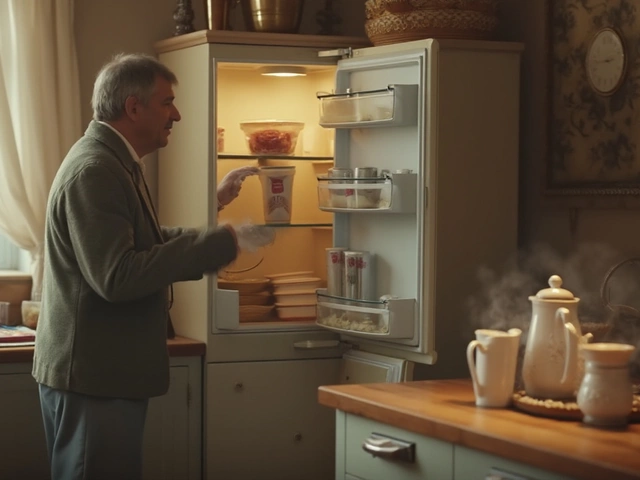Thinking about whether to repair your freezer or not can be a bit of a puzzle. Repairing a freezer may seem straightforward, but there are layers to consider before making such a decision. Whether your appliance is making odd noises, not keeping things cold, or simply not running at all, knowing when to hold onto your old standby and when to part ways is crucial.
Every appliance has its problems. From frost buildup to mysterious leaking, identifying common issues can save time and effort. But the story doesn't end there. Once you've pinpointed the problem, weighing the repair costs against the benefits is the next step. Sometimes, the price of fixing an old freezer may not justify the investment, especially if it lags in energy efficiency compared to newer models on the market.
The age of your freezer plays a significant role in the repair-or-replace decision. Older models might seem robust, yet they can be energy hogs. In light of environmental concerns and potential long-term savings, investing in a new, energy-efficient model could be more cost-effective. But if sticking with repairs is not only cheaper but also more sustainable, it's worth considering. Evaluating these aspects, keeping an eye on both your pocket and the planet, may lead you to the right choice.
- Common Freezer Issues
- Evaluating Repair Costs
- Age and Energy Efficiency Considerations
- Environmental and Economic Impact
Common Freezer Issues
When it comes to maintaining the cool efficiency of a freezer, understanding prevailing issues can be a significant first step in diagnosis. One of the most frequent complaints among freezer owners is frost buildup. This icy intruder can take over the appliance's walls and shelves, reducing space and efficiency. Frost buildup might indicate a problem with the door seals or that the freezer temperature is set too low. Sustained frost can further strain the motor, adding to potential repair costs.
Another persistent issue is leaks, usually noticed as small pools of water around the bottom of the appliance. Water leakage often points to defrost drain problems, which can be blocked by food particles or ice, preventing proper drainage. Regularly cleaning the drain with warm water can help avoid this problem. As appliance technology advances, some newer models include self-defrosting features, but these can experience faults leading to unexpected water buildup.
Freezers may also fail to maintain a cold temperature, which could be due to several reasons, including a malfunctioning thermostat. Another culprit might be the compressor, which circulates refrigerant. If it's faulty, the freezer won't stay cold. Homemade remedies can involve checking the condenser coils for dust and debris, as clogged coils can impair efficiency. Each solution requires understanding the specific problem, earning the advice of many repair experts like this quote by appliance specialist Robert Lucas:
"Troubleshooting freezer problems often needs a balance of careful observation and timely action, especially before larger issues arise."
Lastly, unusual noises emanating from a freezer can be unnerving. Often attributed to fans or motors, these sounds can vary from soft humming to loud clanking. An irregular noise might suggest ice build-up or a loose motor component. Regular checks for obstructions and thorough cleaning are best practices to mitigate these disturbances. Despite these common issues, knowing how to troubleshoot them empowers owners to extend the lifespan of their appliances, averting costly replacements and making freezer repair a more viable option.

Evaluating Repair Costs
When faced with a malfunctioning freezer, a crucial step is understanding the expenses involved in getting it back in working order. Repair costs can vary significantly depending on the nature of the issue. For minor problems, such as a broken door seal or a faulty thermostat, the remedy might be relatively affordable. These repairs often involve low-cost parts and minimal labor time. However, more complex complications, like a malfunctioning compressor or a coolant leak, can come with a heftier price tag. To make an informed decision about repairing a freezer, it's essential to weigh these potential costs against the benefits.
Understanding the cost of specific components can provide valuable insight. For instance, replacing a thermostat might set you back between £50 to £100, including both parts and labor. On the other hand, a compressor replacement could range from £200 to £400, a significant investment. In certain cases, such as an older model nearing the end of its lifespan, the expense of repair might rival the cost of a new freezer. This is when the decision becomes tricky, as opting for a repair could only serve as a temporary solution, rather than addressing the appliance's ongoing inefficiencies.
Quoting a respected source, the Consumer Reports organization advises, "If the repair cost is more than half the price of a new freezer, and the appliance is more than five years old, consider replacement." This guideline underscores the importance of critically assessing the state of the appliance within the broader context of technological advancements in freezer efficiency. A newer freezer model may offer significant savings on your energy bill, something that should not be overlooked when tallying the potential costs.
Comparing Costs and Benefits
But the decision isn't purely about numbers. It's about balance, ensuring your choice fits your financial plans and practical needs. To aid in this analysis, consider creating a simple chart that juxtaposes repair costs with the benefits of new energy-efficient models.| Repair Type | Estimated Cost | Likelihood of Future Repairs | Energy Efficiency Benefits |
|---|---|---|---|
| Minor Repair (Thermostat) | £50-£100 | Low | Minimal |
| Major Repair (Compressor) | £200-£400 | High | Significant if updated |
| Replacement | £300-£1000 | None | High |
Such a detailed approach can help put things into perspective. The relationship between repair costs and freezer age, combined with potential energy savings, may push you toward opting for a new model. Freezers designed with modern technology are not only more sustainable but also bring advancements that lead to better durability and lower future repair needs.

Age and Energy Efficiency Considerations
Recognizing how long your freezer has been in service can significantly influence whether a repair is worth pursuing. Across the lifespan of most appliances, there comes a point where repair costs frequently rise. Many experts state that freezers generally last anywhere between 10 to 20 years, with the variability often contingent on maintenance and brand. However, as freezers age, not only do they become prone to more frequent breakdowns, but they also tend to consume more energy. This increase in energy use can silently add to household utility bills, complicating the calculation of repair vs. replacement.
When contemplating repairs, taking a close look at the energy efficiency of your appliance is paramount. Modern freezers are typically built to be more energy-efficient, with advancements in technology pushing the boundaries of what older models can deliver. The energy consumption differential can be stark, with newer models often using 20-40% less energy compared to their outdated counterparts. This is not just an economic consideration—it's an environmental one too. Lower energy consumption contributes to a smaller carbon footprint, which aligns with global sustainability goals. According to the U.K.'s Energy Saving Trust, replacing an old freezer with an A+++ rated appliance could save you upwards of £50 annually just on energy bills.
Freezer troubleshooting becomes particularly crucial when evaluating old appliances. Key things to look for include checking the energy rating of your appliance—a quick glance at the rating label can offer insights into potential energy costs. It is wise to compare these ratings with what's available now. Should your freezer rank lower in energy efficiency, it might signal a need for a new purchase rather than continuous tweaks and fixes. Selecting the right appliance—opting for energy efficiency—can bridge the gap between short-term fixes and long-term savings. As eloquently captured by the Environmental Protection Agency, "Adopting energy-efficient practices is not just good economics; it's an investment in our future."
For those weighing their financial options, it might be helpful to draft a cost-benefit analysis. Consider not just the initial expense of purchasing a new freezer, but also the long-term benefits associated with reduced energy bills and fewer service calls. One study found that replacing a decade-old freezer with a modern, efficient model could result in overall savings that soon offset the initial price difference. To visualize, here's a simple comparison of annual costs:
| Appliance Age | Estimated Annual Energy Cost |
|---|---|
| 10-Year-Old Freezer | £100 |
| New Energy Efficient Model | £60 |
Thus, it's imperative to do the math and decide if holding onto an older, inefficient appliance merely piles on operating costs unnecessarily. Whether repairing an existing appliance or venturing for a new purchase, informed decision-making will always lead to a more satisfying outcome.

Environmental and Economic Impact
Deciding whether to repair or replace your freezer extends beyond mere cost considerations. There's a broader canvas involving environmental and economic impacts. Repairing your freezer can significantly reduce your carbon footprint. Appliances contribute notably to environmental degradation when they end up in landfills. Opting to repair rather than replace helps reduce e-waste and conserve natural resources. Components like compressors and refrigerants can be detrimental if not disposed of properly. By preserving an existing appliance, you're investing in a greener planet, which in itself is a noble cause.
From an economic perspective, the decision isn't just about repair costs in isolation. It's crucial to balance this with potential long-term savings. Are newer models indeed more energy-efficient? If your freezer is ten years old or more, chances are it's using more electricity than modern ones. New freezers often boast impressive energy ratings that can lead to substantial savings on utility bills. But there's a tipping point where the repair costs of an older model outstrip these potential savings. Encouragingly, some government schemes offer rebates for purchasing energy-efficient appliances, which can sweeten the deal of upgrading.
The benefits of choosing the most efficient option can be detailed in a simple comparison. Suppose a new high-efficiency freezer cuts your electricity use by 20% annually. If your average annual cost is £100, that's a saving of £20 a year. While it might seem small, consider the cumulative savings over the lifetime of the appliance. Yet, it is necessary to weigh these advantages against repair costs. Typically, if the repair is over 50% of the cost of buying a new appliance, replacement is often recommended. According to the Energy Saving Trust, upgrading to an A-rated freezer could save households around £30 a year.
"The true cost of replacing household appliances is not just in the purchase price," mentions eco-expert Jack Thompson. "There are environmental costs to consider when discarding old machines, so a thoughtful decision is critical."
While thinking about money and the planet, the decision can also impact your local economy. Repair services often involve local tradespeople, pumping money back into your community. This localized spending can help bolster local businesses, create jobs, and support sustainable growth models. It's an aspect often overlooked in individual financial calculations but worth acknowledging. In essence, every decision to repair generates a ripple effect, influencing not just your wallet, but the world and society at large. It's more than a transaction; it's a choice shaping tomorrow's ecosystem.




